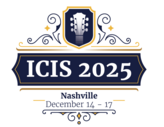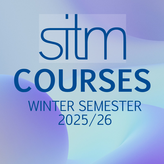Singleview
Thu, 03. Jul 2025 Karger, Erik
Master thesis on „Governing the Decentralized: A Comparative Case Study of the Governance in Tezos, Arbitrum, Optimism, Starknet, Polkadot, Ethereum, and Bitcoin“
For master students, who want to carry out their master thesis, the SITM Chair offers a topic dealing with governance in blockchain networks.
Background and Motivation:
The concept of decentralized governance lies at the heart of blockchain systems, yet in practice, governance designs vary significantly across protocols. Some projects implement formal on-chain voting mechanisms, while others rely on informal off-chain processes, core developer influence, or hybrid models. As protocols mature, governance structures also evolve—driven by technical upgrades, ecosystem growth, and stakeholder dynamics.
This thesis investigates how major blockchain projects, namely Tezos, Arbitrum, Optimism, Starknet, Polkadot, Ethereum, and Bitcoin, govern themselves. It aims to uncover the structural, procedural, and cultural dimensions of blockchain governance, and how these have changed over time. The project takes a case study approach to enable in-depth, contextualized comparison across distinct blockchain ecosystems.
Research Objectives:
The thesis will pursue the following objectives:
- Describe and document the formal and informal governance mechanisms of each selected blockchain protocol.
- Trace the evolution of governance structures in response to ecosystem needs, controversies, or technological changes.
- Compare stakeholder roles and power dynamics, including the influence of developers, token holders, validators, DAOs, foundations, and users.
- Assess the degree of decentralization and transparency in decision-making processes.
- Identify recurring governance challenges and best practices across ecosystems.
Methodology:
This study will follow a comparative qualitative case study design, combining the following methods:
- Document analysis: review of governance documentation (whitepapers, improvement proposals, referenda, forum posts, foundation reports).
- Process tracing: identification of key governance events (e.g., major upgrades, forks, disputes) and how decisions were made.
- Semi-structured interviews (optional): with protocol contributors, foundation members, governance delegates, or community leaders.
- Cross-case comparison: structured comparison using a governance framework (e.g., on-chain vs off-chain, formal vs informal, centralized vs decentralized, etc.).
Each protocol will be analyzed across multiple dimensions, such as:
- Governance architecture and process
- Stakeholder composition and influence
- Upgrade procedures
- Voting and participation mechanisms
- Transparency and accountability measures
- Notable governance events and shifts
Expected Contribution:
This thesis will provide a systematic comparative account of governance in leading blockchain projects, highlighting both convergence and divergence in design and practice. It will offer:
- A typology of governance models in permissionless blockchains
- Insight into how governance evolves as protocols scale
- Recommendations for future protocol design and research into decentralized governance
Interested students are invited to send an e-mail to erik.karger (at) uni-due.de.
Latest News:
 Prof. Ahlemann @KoMet Day 2025 – Green Transformation Ruhr09.12.25
Prof. Ahlemann @KoMet Day 2025 – Green Transformation Ruhr09.12.25 SOFTEC contributes research on GenAI-based user simulation at ICIS 202504.11.25
SOFTEC contributes research on GenAI-based user simulation at ICIS 202504.11.25 SOFTEC at the Day of Computer Science 2025: Research on Compassionate AI30.10.25
SOFTEC at the Day of Computer Science 2025: Research on Compassionate AI30.10.25 New Research Associate: Deniz Baris Gölgelioglu10.10.25
New Research Associate: Deniz Baris Gölgelioglu10.10.25 IS-Project? SITM got you! Information event on Bachelor/Master Projects on 13.10.2509.10.25
IS-Project? SITM got you! Information event on Bachelor/Master Projects on 13.10.2509.10.25 Our Courses for Winter Semester 2025/26 @SITM01.10.25
Our Courses for Winter Semester 2025/26 @SITM01.10.25 Studienprojektthemen für das WS25/26 jetzt online30.09.25
Studienprojektthemen für das WS25/26 jetzt online30.09.25

